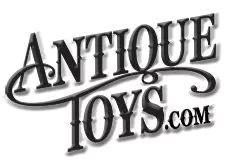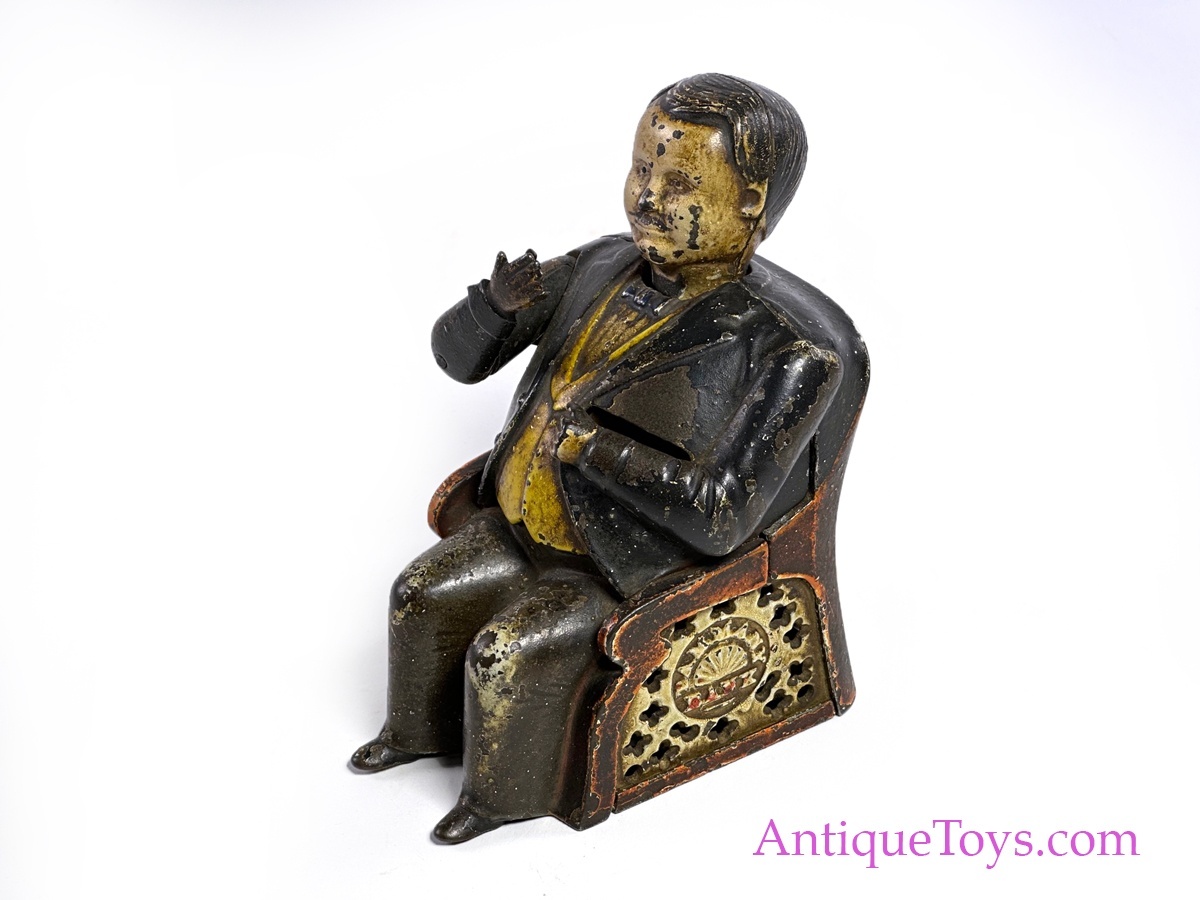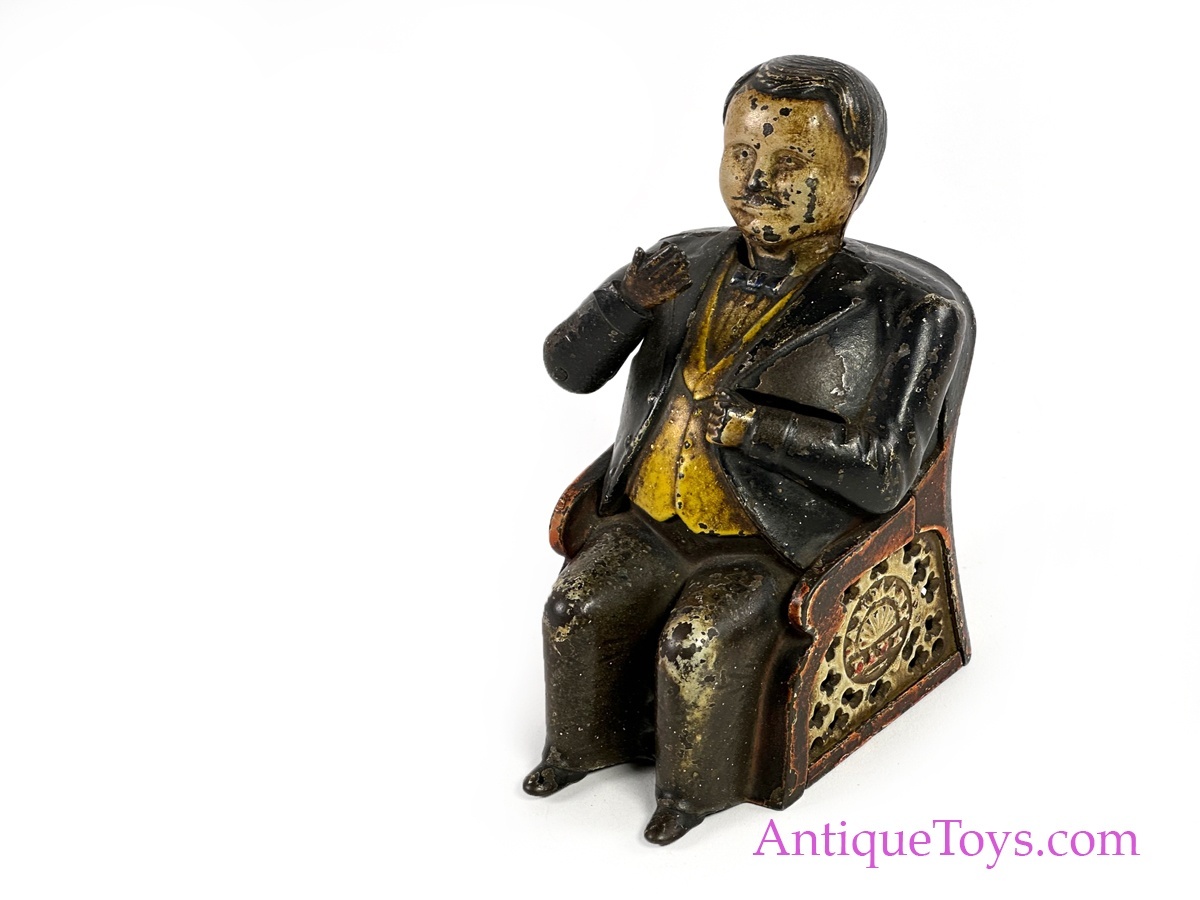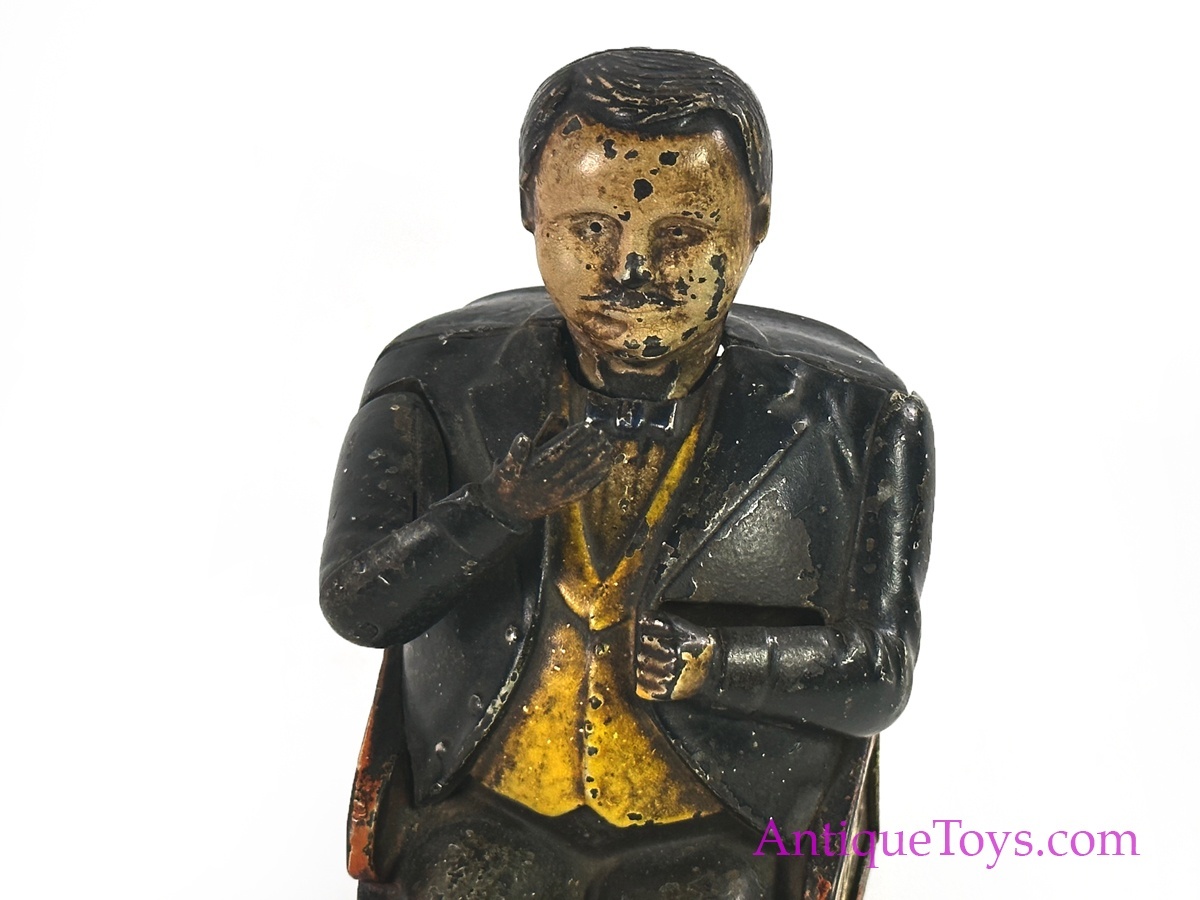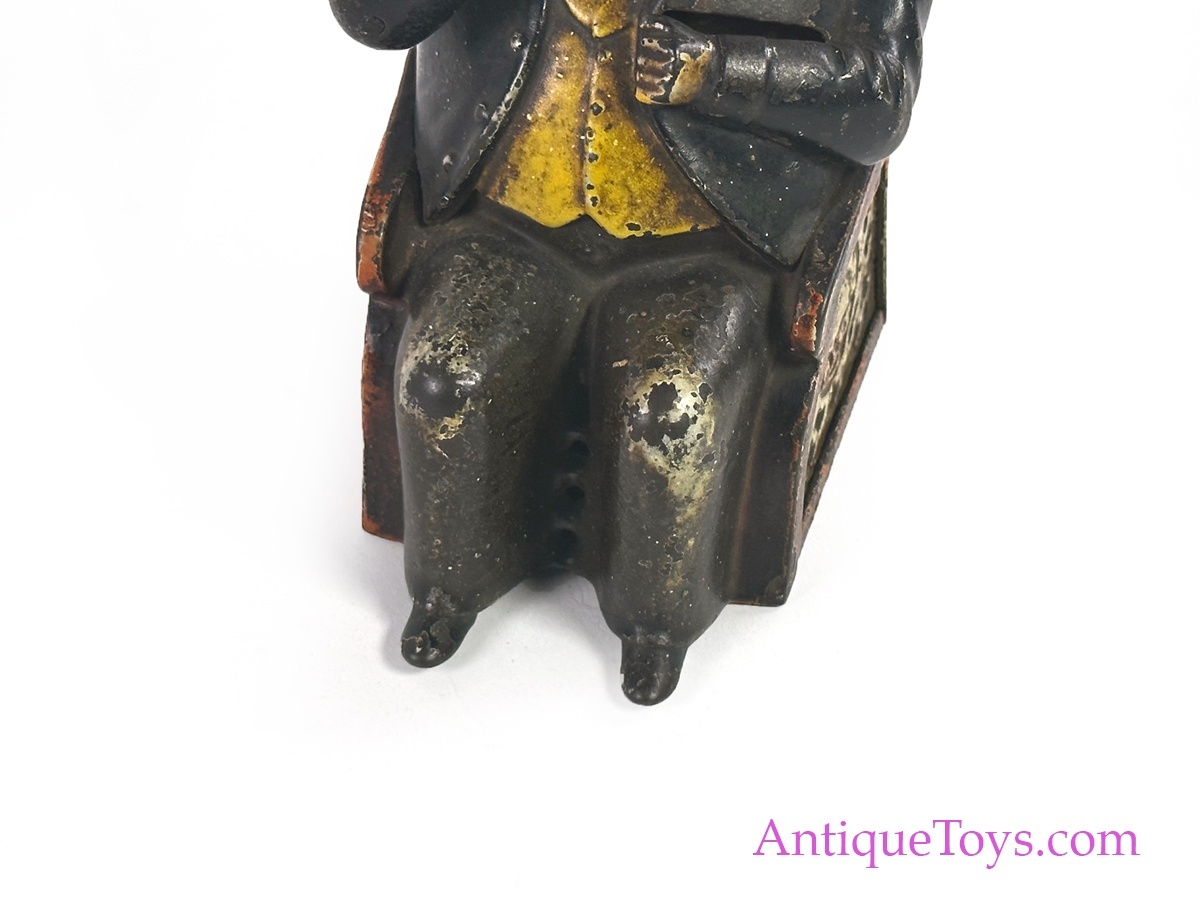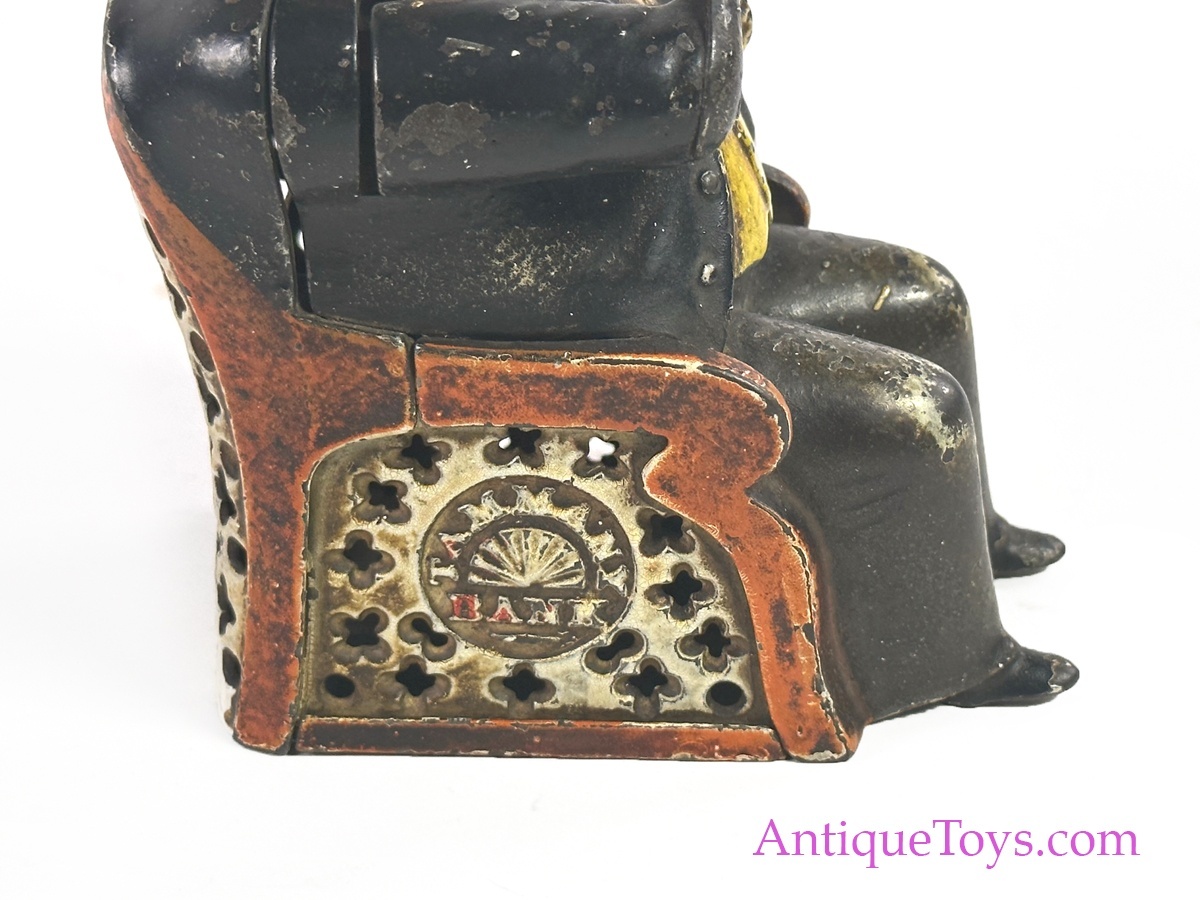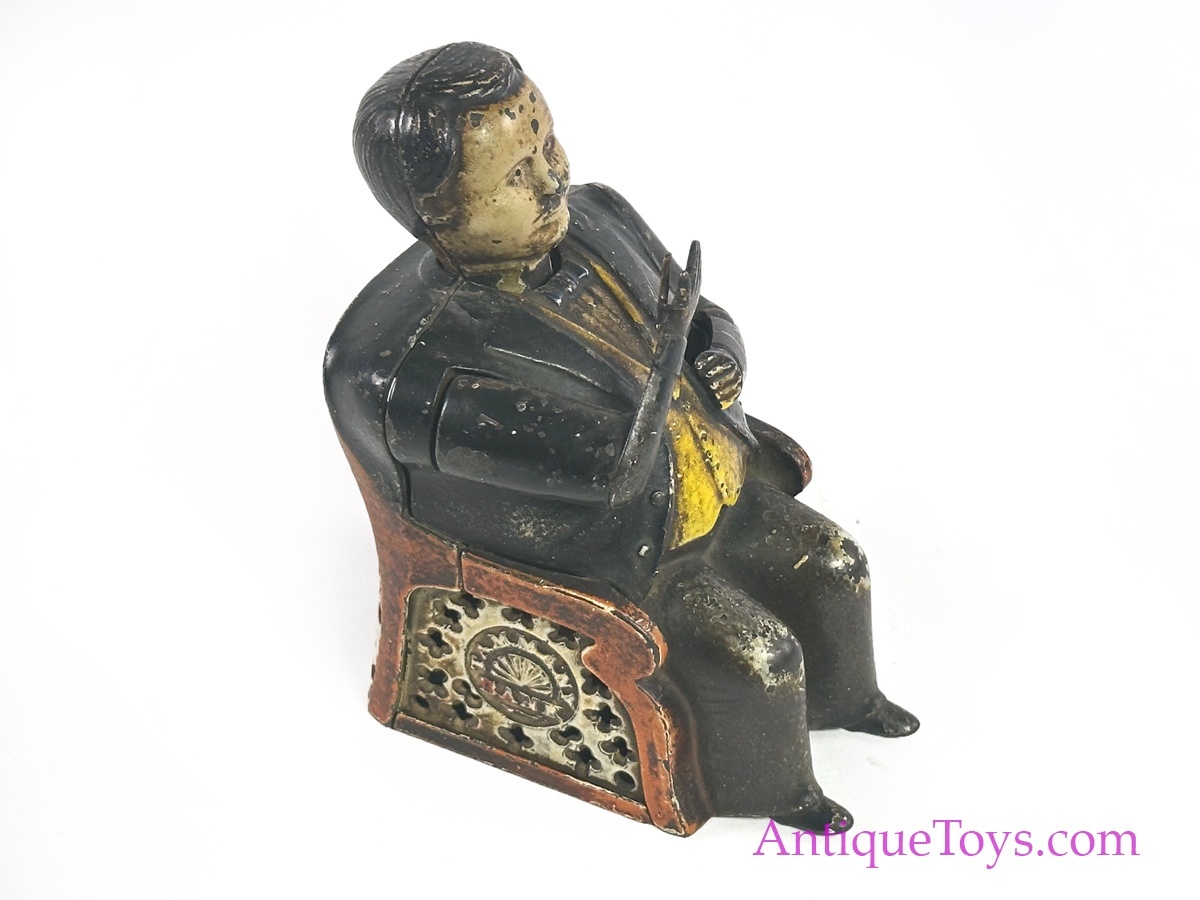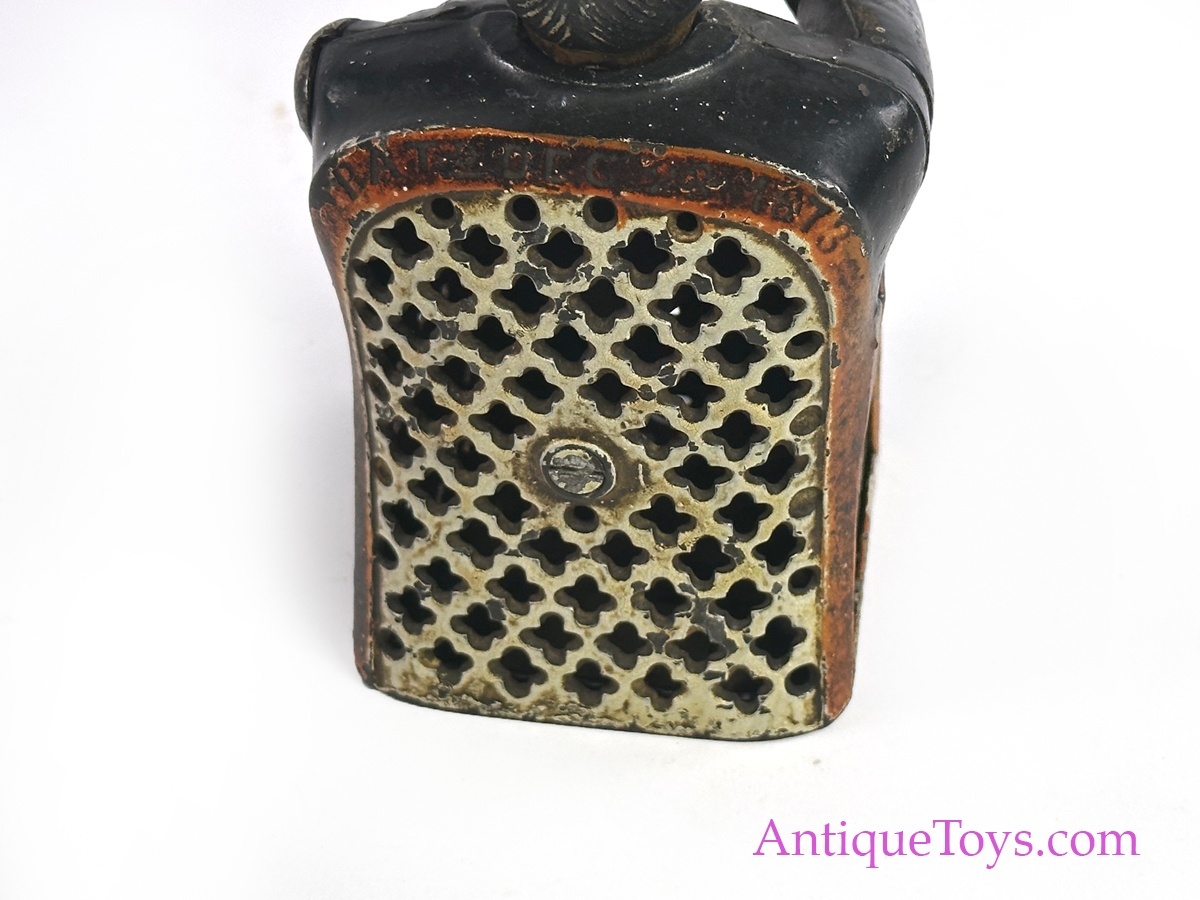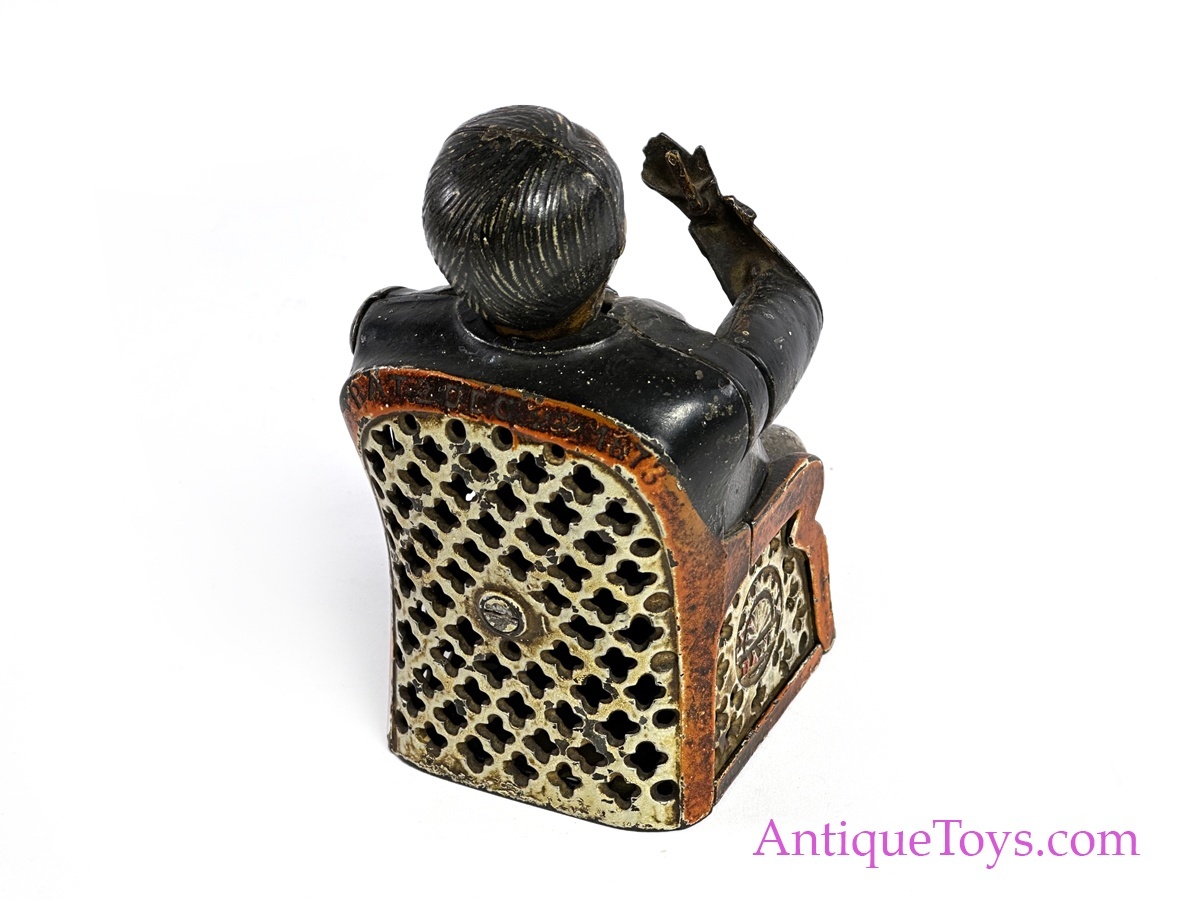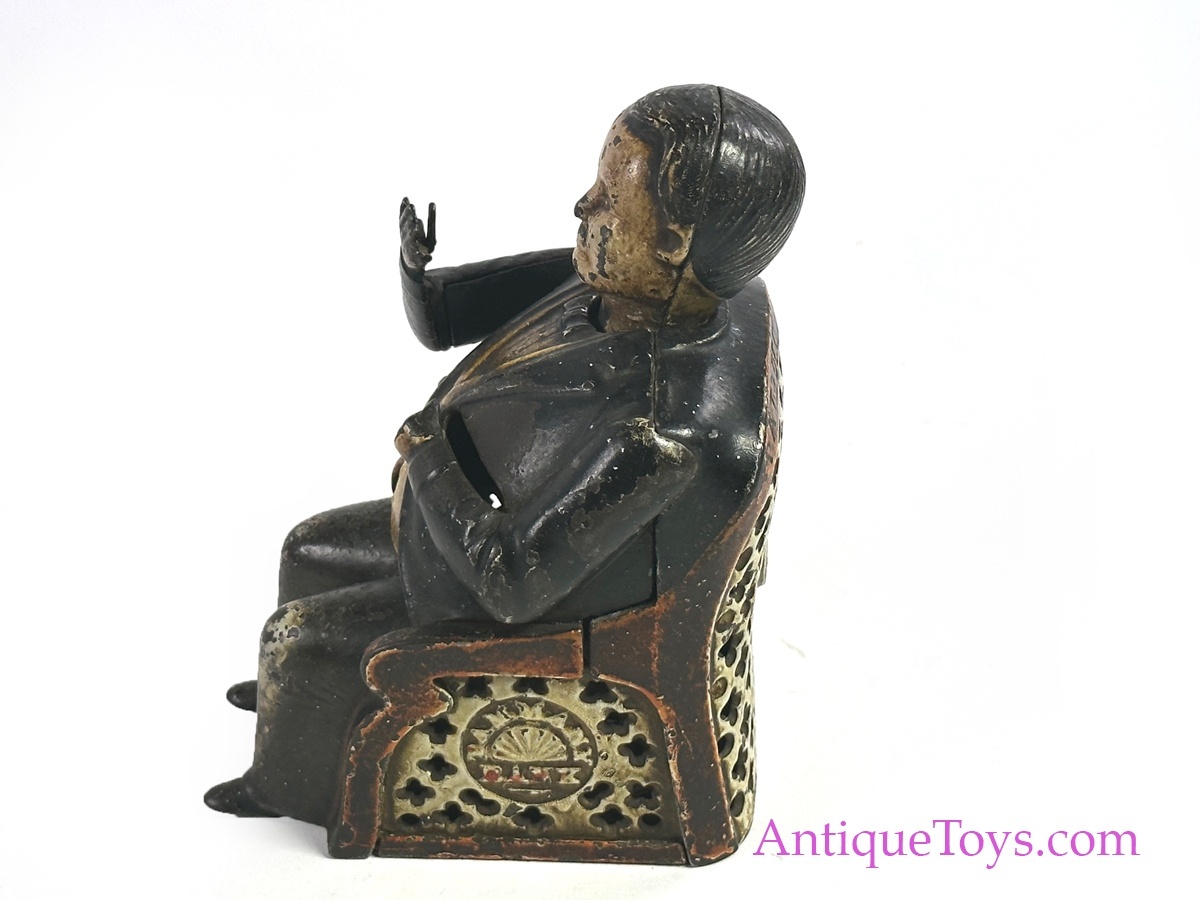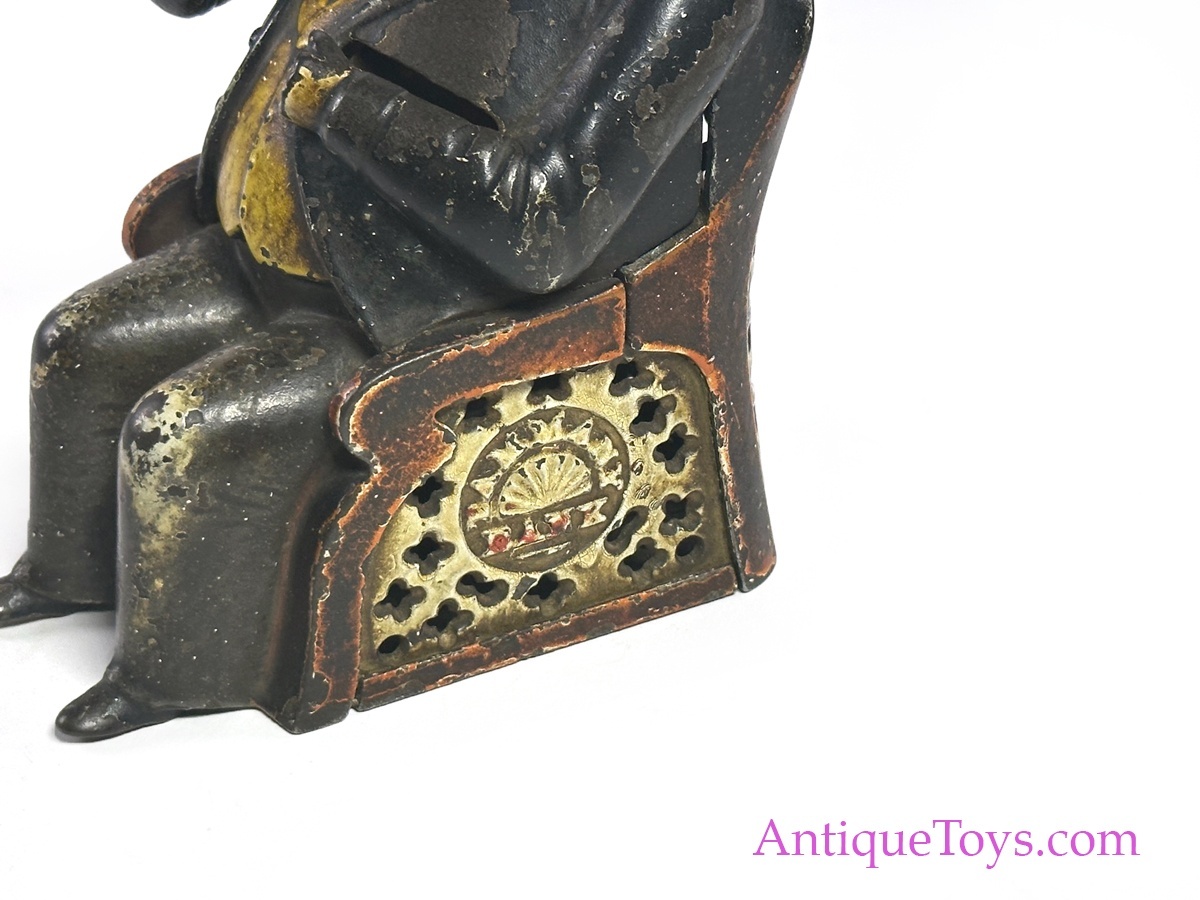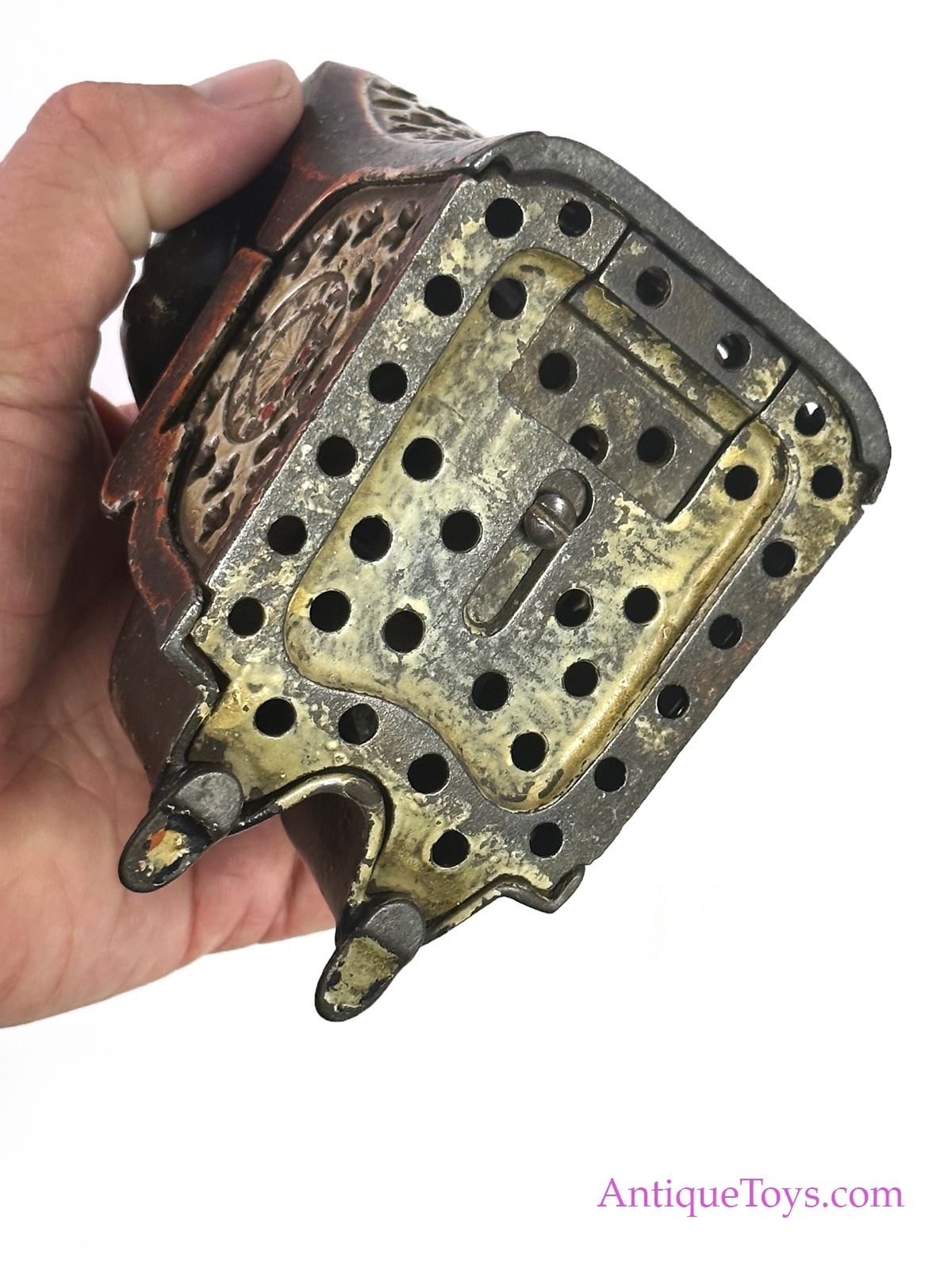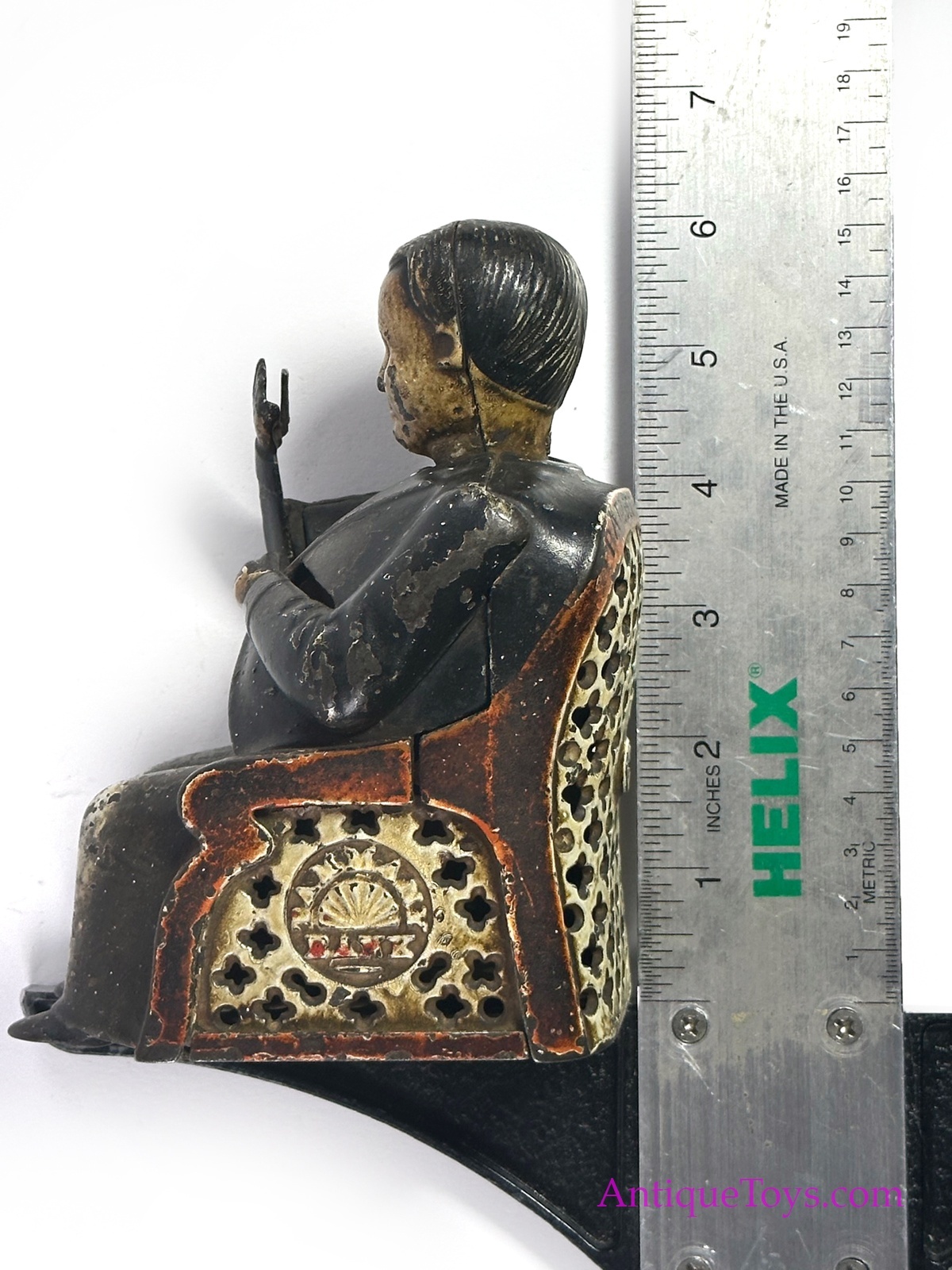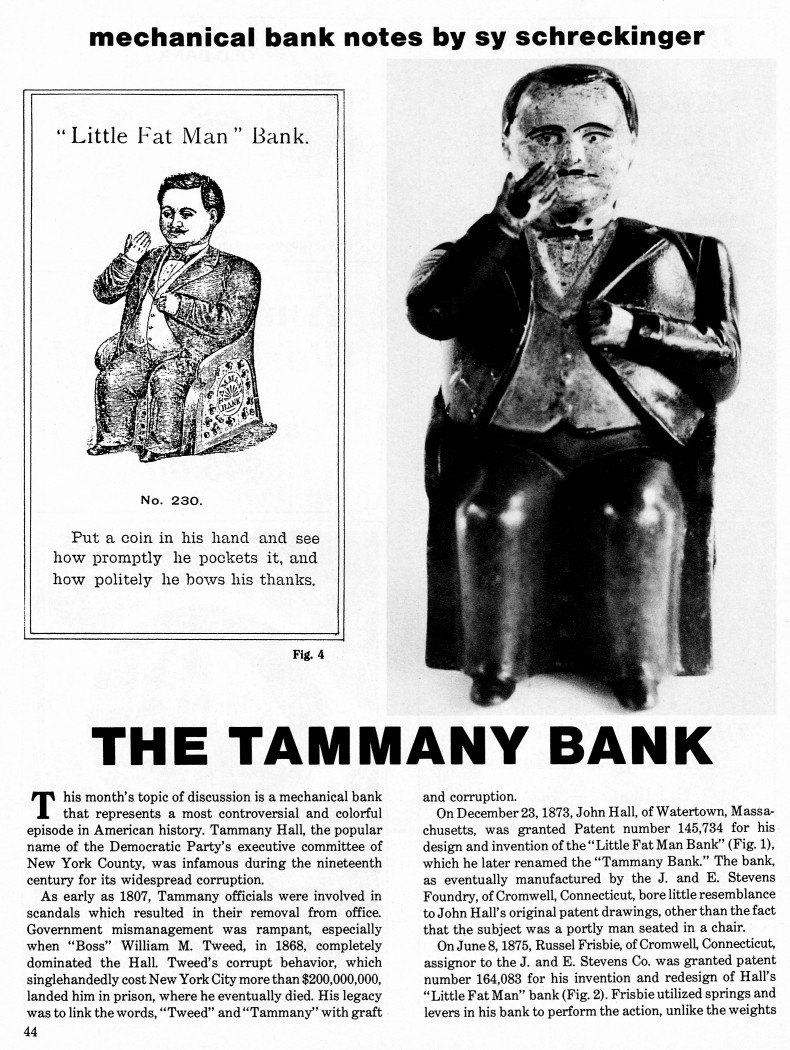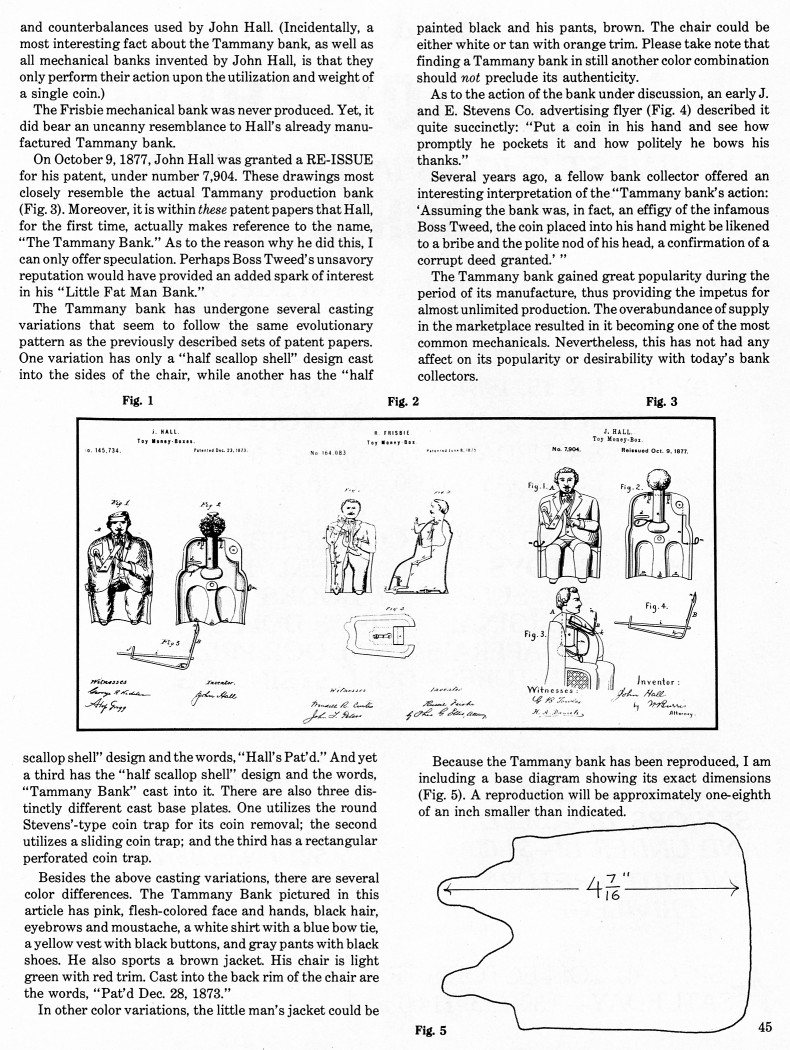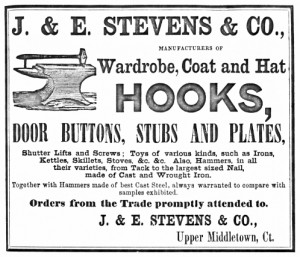J. & E. Stevens Co. Cast Iron No. 230 Tammany Bank “Little Fat Man” Mechanical Bank *SOLD*
J. & E. Stevens Co. Cast Iron No. 230 Tammany Bank “Little Fat Man” Mechanical Bank
We have for you today the extremely desirable J. & E. Stevens Tammany Bank “Little Fat Man” cast iron mechanical bank designed by John Hall.
This variation of the “Little Fat Man” has black hair/eyebrows/mustache, with an extremely clean flesh-colored face/hands, dark blue bow tie, white shirt, yellow vest, black jacket/shoes, and gray pants. The chair he sits on is a tan “half scallop shell” design with orange trim. On the right side of the chair, it says “Halls Pat’d” and on the left side it says “Tammany Bank.” Cast into the back along the trim says, “Pat’d Dec. 28, 1873.” This bank has a sliding coin trap on the bottom in a matching tan color. Although it is hardly visible, on the coin trap it says, “June 8, 1875.”
This bank has a weighted mechanism. When you put a coin in his hand he “pockets” the money and bows his head as a sort of thank you. The mechanism has been tested and works.
Enjoy our original Tammany Mechanical Bank by J.E. Stevens. It is a true Antique at around 120 years of age.
Action is simple, yet perfect. The character of “Boss Tweed” takes money, slips it into his pocket, and does an appreciative nod. The toy takes a stab at the political corruption in the late 1800s politicians.
This bank is original with wear, something that is nice to see at times. Proper chipping, proper use, darkening, wear, and the 100-plus-year-old patina.
The trap is present and is a sliding trap, using a screw to secure it.
The toy is free of cracks and operates properly. The paint is original with wear and chipping.
It is in all original condition with no restorations, repairs, breaks, or touch-ups. We detected surface rusting here and there, but overall the bank shows the usual patina, chips, scuffs, scratches, and wear that are to be expected from age and use. The bank is approximately 4” on the base from one foot to the back and approximately 5 ¾ tall. This would be a great addition to any mechanical bank collection. We invite you to view the photos to further determine quality and condition.
A brief history of J. & E. Stevens of Cromwell, Connecticut
J. & E. Stevens of Cromwell, Connecticut operated between 1842 and into the 1950s. The founders were John and Elisha Stevens. When J. & E. Stevens began they first started making cast iron hardware, hammers, and simple iron toys. Their metal fabrication line also included stubs, plates, door buttons, as well as, wardrobe, coat, and hat hooks. They are believed to be one of the first manufacturers of cast iron toys in the United States. They manufactured toys such as cannons, locomotives, whistling tops, toy irons, kettles, skillets, and stoves.
Throughout their time they made a variety of toys and are most famous for their more than 300 types of mechanical banks and cap pistols. The company specialized in cast iron mechanical banks from 1870 until the turn of the century. In 1859 they produced their first cap pistol and by 1928 they devoted themselves entirely to the production of cap pistols. An interesting side note is that J. & E. Stevens supplied The Gong Bell Manufacturing Company of Hampton, Connecticut, and Watrous Bell Toys with the castings for their bell toys. Elisha Stevens later joined George Brown to establish Stevens & Brown. Brown and Elisha Stevens started a new toy enterprise in Cromwell in 1869 producing a variety of tin toys. During World War II the company closed due to the shortage of iron and the company was sold to Buckley Brothers of New York in 1950.
Additional information
| Weight | 4 lbs |
|---|---|
| Dimensions | 12 × 9 × 9 in |
